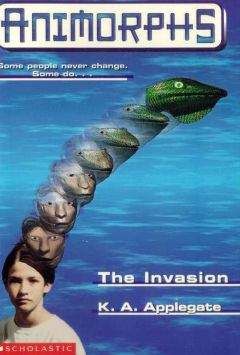Илья Франк - Английский язык с В. Ирвингом. Рип ван Винкль

Помощь проекту
Английский язык с В. Ирвингом. Рип ван Винкль читать книгу онлайн
The opinions of this junto were completely controlled by Nicholas Vedder (убеждения этого тайного союза были полностью под контролем Николаса Веддера; junto [‘GAntqV] — тайный союз, клика), a patriarch of the village (патриарха деревни; patriarch [‘peItrIQ:k] — глава рода; патриарх; основатель), and landlord of the inn (и владельца гостиницы), at the door of which he took his seat from morning till night (у двери которой он занимал свое место с утра до вечера), just moving sufficiently to avoid the sun (только сдвигаясь в достаточной мере, чтобы избежать солнца; sufficient [s(q)’fIS(q)nt] — достаточный, обоснованный; достаточное количество) and keep in the shade of a large tree (и держаться в тени большого дерева); so that the neighbors could tell the hour by his movements as accurately as by a sun-dial (так, что соседи могли определять время: «час» по его передвижениям так же точно, как по солнечным часам). It is true he was rarely heard to speak (правда, редко слышали, чтобы он говорил: «это правда, что он был редко слышим говорящим»; to hear [hIq] — heard [hq:d] — heard — слышать; услышать), but smoked his pipe incessantly (но беспрестанно курил свою трубку; incessant [In’sesnt] — непрерывный, беспрестанный).
The opinions of this junto were completely controlled by Nicholas Vedder, a patriarch of the village, and landlord of the inn, at the door of which he took his seat from morning till night, just moving sufficiently to avoid the sun and keep in the shade of a large tree; so that the neighbors could tell the hour by his movements as accurately as by a sun-dial. It is true he was rarely heard to speak, but smoked his pipe incessantly.
His adherents, however (его сторонники, однако) (for every great man has his adherents (так как у каждого великого человека есть свои сторонники)), perfectly understood him (отлично понимали его; to understand [,Andq’stxnd] — understood [,Andq’stVd] — understood — понимать; смыслить; осознавать), and knew how to gather his opinions (и знали, как понимать его мнение; to know [nqV] — knew [nju:] — known[nqVn] — знать; разбираться; уметь; to gather [‘gxðq] — собирать; накоплять; делать умозаключения). When any thing that was read or related displeased him (когда что-нибудь, что было прочитано или рассказано, вызывало его недовольство; to relate [rI’leIt] — относиться; реагировать; рассказывать, повествовать; to displease [dIs’pli:z] — навлекать на себя недовольство, вызывать недовольство; раздражать), he was observed to smoke his pipe vehemently (было видно, как он неистово курил свою трубку; vehement [‘vi:Imqnt] — сильный, неистовый, страстный); and to send forth short (и выпускал короткие), frequent and angry puffs (частые и сердитые клубы дыма; puff [pAf] — дуновение; порыв; затяжка; клуб дыма); but when pleased (но, когда ему нравилось), he would inhale the smoke slowly and tranquilly (он вдыхал дым медленно и умиротворенно; tranquil [‘trxNkwIl] — спокойный, уравновешенный, мирный, безмятежный), and emit it in light and placid clouds (и выпускал его светлыми и спокойными клубами: «облаками»); and sometimes (и иногда), taking the pipe from his mouth (вынимая трубку изо рта), and letting the fragrant vapor curl about his nose (и позволяя ароматному дыму извиваться вокруг его носа), would gravely nod his head in token of perfect approbation (бывало, серьезно кивал головой в знак полного одобрения).
His adherents, however (for every great man has his adherents), perfectly understood him, and knew how to gather his opinions. When any thing that was read or related displeased him, he was observed to smoke his pipe vehemently; and to send forth short, frequent and angry puffs; but when pleased, he would inhale the smoke slowly and tranquilly, and emit it in light and placid clouds; and sometimes, taking the pipe from his mouth, and letting the fragrant vapor curl about his nose, would gravely nod his head in token of perfect approbation.
From even this stronghold (даже из этой цитадели; stronghold [‘strONhqVld] — крепость, твердыня, цитадель; оплот) the unlucky Rip was at length routed by his termagant wife (несчастный Рип, в конце концов, бывал обращен в бегство его сварливой женой), who would suddenly break in upon the tranquility of the assemblage (которая, бывало, неожиданно врывалась в спокойствие собрания; assemblage [q’semblIG] — сбор, собрание; скопление) and call the members all to naught (и называла его участников ничтожествами; naught [nO:t] — ничто; ноль; бесполезный, ничтожный); nor was that august personage (не была даже такая августейшая особа), Nicholas Vedder himself (как сам Николас Веддер), sacred from the daring tongue of this terrible virago (неприкосновенен от дерзкого языка этой ужасной мегеры; virago [vI’rQ:gqV] — бой-баба, амазонка; сварливая женщина, мегера), who charged him outright with encouraging her husband in habits of idleness (которая прямо обвиняла его в подстрекательстве ее мужа к привычкам праздности).
From even this stronghold the unlucky Rip was at length routed by his termagant wife, who would suddenly break in upon the tranquility of the assemblage and call the members all to naught; nor was that august personage, Nicholas Vedder himself, sacred from the daring tongue of this terrible virago, who charged him outright with encouraging her husband in habits of idleness.
Poor Rip was at last reduced almost to despair (бедный Рип был в итоге доведен почти до отчаянья); and his only alternative (и его единственный выбор), to escape from the labor of the farm and clamor of his wife (избежать: «убежать от» труда на ферме и крика жены; labor [‘leIbq] — труд; работа, задание; clamor — [‘klxmq] — шум, крик, ор; ропот), was to take gun in hand and stroll away into the woods (было взять ружье в руки и уйти в лес). Here he would sometimes seat himself at the foot of a tree (здесь он, бывало, иногда усаживался у подножья дерева), and share the contents of his wallet with Wolf (и делился содержимым своей сумки с Вольфом), with whom he sympathized (к которому он доброжелательно относился) as a fellow-sufferer in persecution (как к товарищу-страдальцу в гонениях; persecution [,pq:sI’kju:S(q)n] — гонения, преследования, травля). "Poor Wolf (бедный Вольф)," he would say (он, бывало, говорил), "thy mistress leads thee a dog's life of it (твоя хозяйка доводит тебя до самой собачьей жизни; thy [D aI] — уст. твоя; thee [D i:] — уст. тебе; of it [qv It] — указывает на выделение лица/предмета из множества аналогичных лиц/предметов); but never mind, my lad (но неважно, мой друг; lad [lxd] — юноша; парень; дружок), whilst I live thou shalt never want a friend to stand by thee (пока я жив, ты никогда не захочешь другого друга стоять рядом с тобой = чтобы рядом с тобой стоял какой-либо другой друг; thou [TaV] — уст. ты; shalt [Sxlt] — уст. 2-е лицо, един. число от гл. shall)!" Wolf would wag his tail (Вольф обычно вилял хвостом), look wistfully in his master's face (глядел тоскливо в лицо хозяина), and if dogs can feel pity (и если собаки могут чувствовать жалость) I verily believe he reciprocated the sentiment with all his heart (я поистине верю, что он отвечал взаимностью на чувство всем своим сердцем; verily — [‘verIlI] — уст. поистине; to reciprocate [re’sIprqkeIt] — делиться; отплачивать).
Poor Rip was at last reduced almost to despair; and his only alternative, to escape from the labor of the farm and clamor of his wife, was to take gun in hand and stroll away into the woods. Here he would sometimes seat himself at the foot of a tree, and share the contents of his wallet with Wolf, with whom he sympathized as a fellow-sufferer in persecution. "Poor Wolf," he would say, "thy mistress leads thee a dog's life of it; but never mind, my lad, whilst I live thou shalt never want a friend to stand by thee!" Wolf would wag his tail, look wistfully in his master's face, and if dogs can feel pity I verily believe he reciprocated the sentiment with all his heart.
In a long ramble of the kind on a fine autumnal day (во время одной такой долгой прогулки прекрасным осенним днем), Rip had unconsciously scrambled to one of the highest parts of the Kaatskill mountains (Рип неосознанно вскарабкался на одну из самых высоких частей Каатскиллских гор; conscious [‘kOnSqs] — сознательный; ощущающий; здравый). He was after his favorite sport of squirrel shooting (это было после его любимого занятия — стрельбы белок), and the still solitudes had echoed and reechoed with the reports of his gun (и в спокойных безлюдных местах отдавалось и отражалось звонкое эхо выстрелов его ружья; to echo [‘ekqV] — отдаваться эхом; вторить, поддакивать; re [rI] — приставка, обозначающая повторение или возобновление действия). Panting and fatigued (тяжело дышащий и усталый; fatigue [fq’ti:g] — усталость, утомление), he threw himself (он упал: «бросил себя»), late in the afternoon (ближе к вечеру: «поздно днем»), on a green knoll (на зеленый холмик; knoll [nqVl] — холмик, бугор), covered with mountain herbage (покрытый горной растительностью), that crowned the brow of a precipice (который венчал выступ обрыва; precipice [‘presIpIs] — обрыв, пропасть).
In a long ramble of the kind on a fine autumnal day, Rip had unconsciously scrambled to one of the highest parts of the Kaatskill mountains. He was after his favorite sport of squirrel shooting, and the still solitudes had echoed and reechoed with the reports of his gun. Panting and fatigued, he threw himself, late in the afternoon, on a green knoll, covered with mountain herbage, that crowned the brow of a precipice.
From an opening between the trees (сквозь просвет между деревьями) he could overlook all the lower country for many a mile of rich woodland (он мог обозревать всю низину на многие мили богатого леса). He saw at a distance the lordly Hudson (он видел вдалеке величавый Гудзон), far, far below him (далеко-далеко под ним), moving on its silent but majestic course (двигаясь медленно, но величаво: «несущий свое медленное, но величественное течение /воды/»), with the reflection of a purple cloud (с отражением пурпурного облака), or the sail of a lagging bark (или парусом медленной лодки), here and there sleeping on its glassy bosom (/то/ здесь, /то/ там спящих на его гладкой поверхности; bosom [‘bVzqm] — грудь, пазуха; лоно, недра), and at last losing itself in the blue highlands (и наконец теряющийся в голубом нагорье).
From an opening between the trees he could overlook all the lower country for many a mile of rich woodland. He saw at a distance the lordly Hudson, far, far below him, moving on its silent but majestic course, with the reflection of a purple cloud, or the sail of a lagging bark, here and there sleeping on its glassy bosom, and at last losing itself in the blue highlands.
On the other side (с другой стороны) he looked down into a deep mountain glen (он посмотрел вниз на глубокую горную лощину), wild (дикую), lonely (пустынную; lonely [‘lqVnlI] — одинокий; уединенный; пустынный), and shagged (заросшую кустарником; shag [Sxg] — жесткая, лохматая шевелюра; чаща; густые заросли молодых деревьев), the bottom filled with fragments from the impending cliffs (дно /которой было/ покрыто обломками нависающих утесов), and scarcely lighted by the reflected rays of the setting sun (и едва освещенную отраженными лучами заходящего солнца; scarcely [‘skFqslI] — едва, с трудом). For some time Rip lay musing on this scene (некоторое время Рип лежал, созерцая этот вид; to lie [laI] — lay [leI] — lain [leIn] — лежать; to muse — погружаться в размышления; задумываться /о чем-л. — on, upon/; задумчиво смотреть); evening was gradually advancing (вечер постепенно наступал); the mountains began to throw their long blue shadows over the valleys (горы начали отбрасывать свои длинные голубые тени на долины); he saw that it would be dark long before he could reach the village (он понял, что стемнеет гораздо раньше, чем он сумеет добраться до деревни; to see [si:] — saw [sO:] — seen [si:n] — видеть; понимать), and he heaved a heavy sigh (он тяжело вздохнул; to heave — поднимать; to heave a sigh — тяжело вздохнуть, простонать) when he thought of encountering the terrors of Dame Van Winkle (когда подумал об ужасах при встрече с матушкой Ван Винкль; to encounter [In’kaVntq] /неожиданно/ встретить/ся/; наталкиваться /на трудности и т. п./; сталкиваться).























